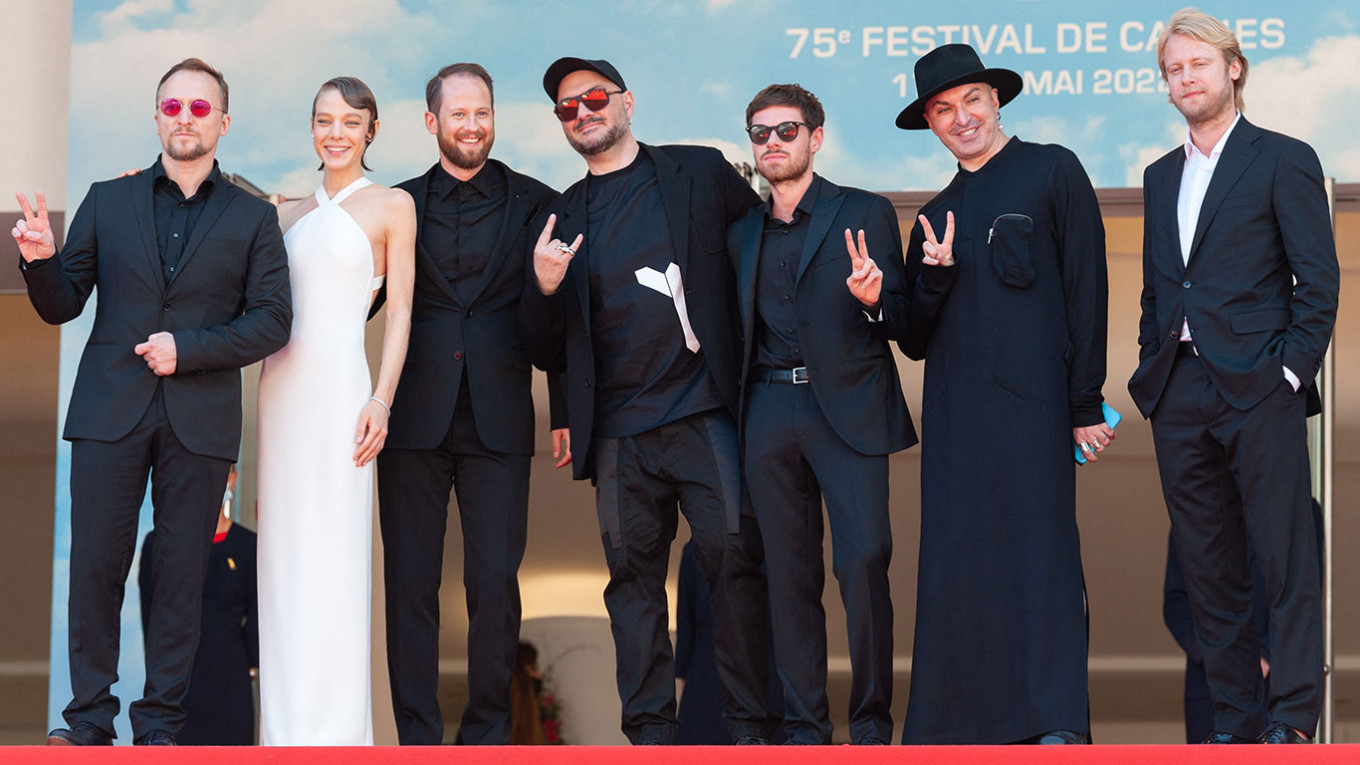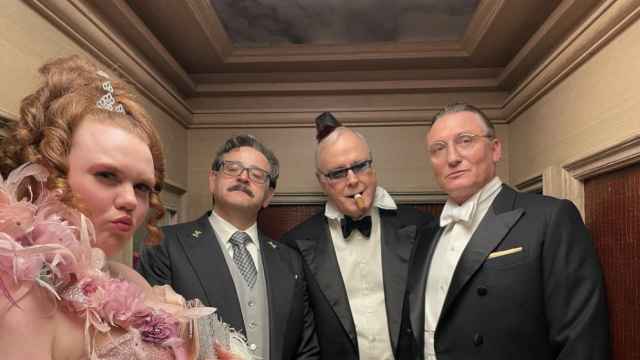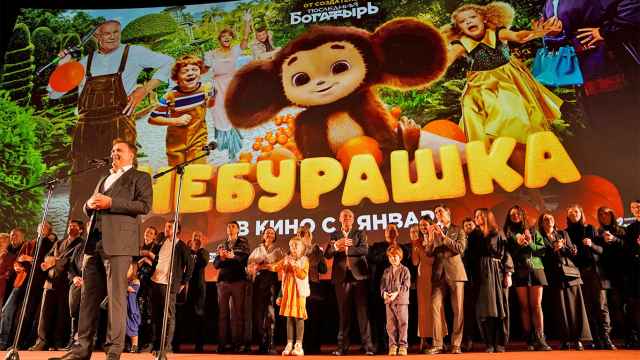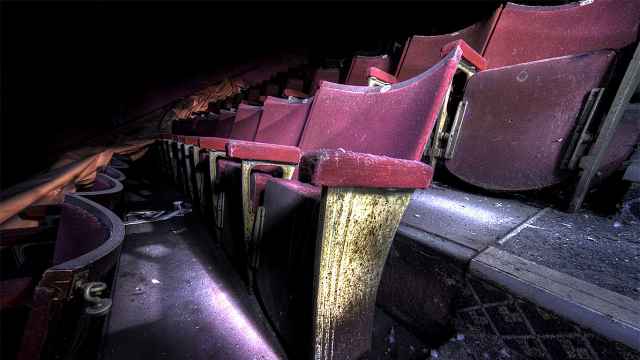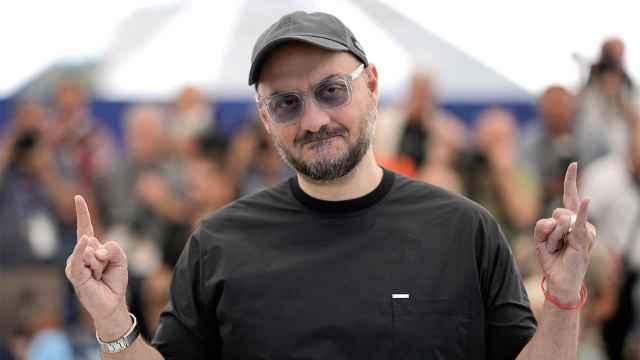At this year’s Cannes International Film Festival, Russian director Kirill Serebrennikov spoke out strongly — and obscenely — against the war Russia has launched in Ukraine but was criticized for wanting economic sanctions lifted from one of his backers, oligarch Roman Abramovich.
Serebrennikov’s film “Tchaikovsky’s Wife,” was the only film from Russia presented at the festival, which opened on May 17. It was permitted by the selection committee because the production was completed before the war in Ukraine began, and because Serebrennikov is believed to have been targeted by the Russian state with a false charge of fraud in the past.
At the press conference for his movie, he said that he left the country the moment he was allowed to travel abroad. “I had to say, ‘F**k the war, I hate you, bye.’ You can’t be silent about this war,” he told the audience.
During his press conference, he said that he could “fully understand people who are calling for boycotts” and that “even hearing the Russian language is very painful for them because of the war. I understand that and accept this. But we can’t stop language, we can’t stop music, we can’t stop staging, we can’t stop cinema. Can you explain to French people that now at this very minute they have to avoid Chekhov, Tchaikovsky, Tolstoy, Eisenstein, Tarkovsky — and forget them all? Of course, they won’t, because it’s a part of their consciousness. It’s not so easy to cut off Russian culture when it’s part of global culture.”
He also called for sanctions to be lifted from oligarch Roman Abramovich, whom he described as a “a real patron of the arts.”
While Serebrennikov spoke at the press conference, a panel was organized at the festival by Ukrainian and American delegations, where attendees criticized the festival's decision to include his film in the program. The head of the Kyiv International Film Festival, Andriy Khalpakhchi said that "Tchaikovsky's Wife" had been funded with "black money."
“Anything and everything Russian must be cancelled," said the founder of Ukrainian production firm F Films Andrew Fesiak. “At a time when Ukrainian film-makers are forced to stop making movies, because they either need to flee for their lives or take up arms... Russian film-makers cannot pretend that everything is fine and that they are not to blame."
The war in Ukraine was front and center from the start of the festival. President of Ukraine, Volodymyr Zelensky appeared on video at the opening ceremony and delivered a 10-minute speech to the festival audience. He once again asked Europe to “support Ukraine in its struggle for freedom,” comparing the bombed-out Mariupol Drama Theater with the Lumiere Cinema in Cannes, mentioning the morning smell of napalm from Francis Coppola's “Apocalypse Now” and, like the barber in Charlie Chaplin's film “The Great Dictator,” urged cinema “not to be silent.”
Another point of criticism was the appearance of the Russian model and influencer Victoria Bonya on the festival’s red carpet. Based in Monaco, Bonya was previously captured posing in a Putin swimsuit. This year she joined Russian socialites in cutting up Chanel accessories in a protest action against the West’s reaction to the war. This did not stop her from coming to the Cannes Film Festival and posing in front of the camera on the day of the festival opening.
There was one other Russian presence at the festival, but this one went almost unnoticed. Several celebrities such as German-Turkish actress Meryem Sarah Uzerli and British singer Tallia Storm walked the red carpet in outfits from Russian couturier Yulia Yanina.
A Message from The Moscow Times:
Dear readers,
We are facing unprecedented challenges. Russia's Prosecutor General's Office has designated The Moscow Times as an "undesirable" organization, criminalizing our work and putting our staff at risk of prosecution. This follows our earlier unjust labeling as a "foreign agent."
These actions are direct attempts to silence independent journalism in Russia. The authorities claim our work "discredits the decisions of the Russian leadership." We see things differently: we strive to provide accurate, unbiased reporting on Russia.
We, the journalists of The Moscow Times, refuse to be silenced. But to continue our work, we need your help.
Your support, no matter how small, makes a world of difference. If you can, please support us monthly starting from just $2. It's quick to set up, and every contribution makes a significant impact.
By supporting The Moscow Times, you're defending open, independent journalism in the face of repression. Thank you for standing with us.
Remind me later.



